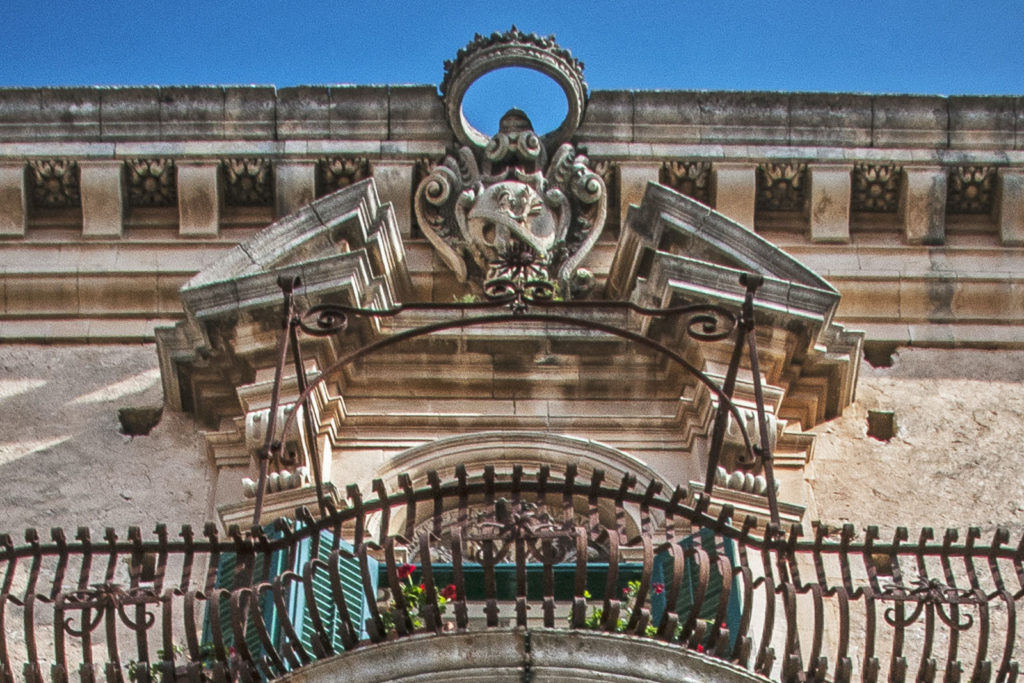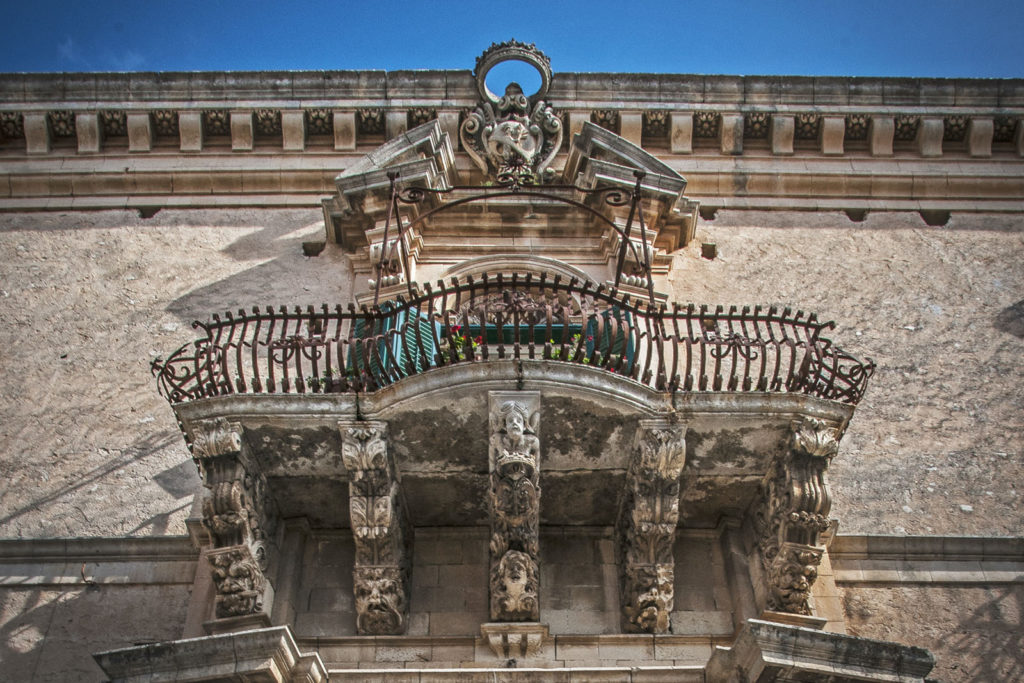The masks of Palazzo Napolino Tommasi Rosso have been watching over Via Francesco Crispi for centuries and have witnessed the passage from one era to another, right to the present day. If they could tell us what they have seen and heard, they would prove how much the world has changed.
Never taking their eyes off of passers-by, the listening masks will continue, like they did in the past, to follow anyone who happens to be on Via Crispi.


Palazzo Napolino Tommasi Rosso was built with a pure white stone, whose pallor is broken up from time to time by the railings of the elegant wrought iron balconies.
The curved, round-bottomed railings create an interesting contrast that adds vitality to the façade.
The white stone and the protruding black railings together create a special effect caused by the use of two very different colours.